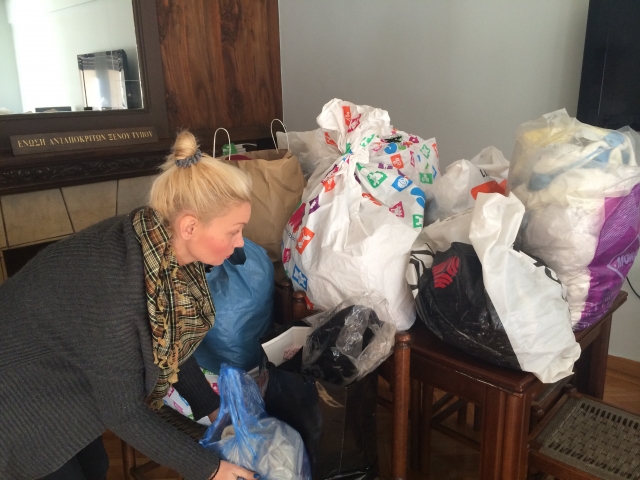Photos - iefimerida.gr, Angelos Tzortzinis, Maria S. Topalova
Maria S. Topalova
11 people have lost their lives in another shipwreck near the Greek island of Farmakonisi, including 5 children, 2 women and 4 men. The coast guard service has been able to rescue 26 people - 17 men, 5 women and 4 children. All are hospitalized on the island of Samos with symptoms of hypothermia. The rescue operation continues, searching for at least another 13 people who had travelled by the same boat.
During the night, the European emergency hotline received a distress signal for a disaster northeast of Farmakonisi island. A Frontex ship immediately arrived at the scene and reported that dozens of people were struggling with the waves. Coast guard vessels and military boats joined the operation too.
According to the testimonies of migrants who had travelled by the same boat, it capsized for unknown reasons, as the sea was relatively calm.
Farmakonisi is the first Greek island that over a year ago became known for the news of the shipwreck of a boat with 14 migrants and victims. Human rights organizations then accused the Greek coast guard of deliberately causing a rough sea and capsizing the boat with migrants, as a result of which 14 people drowned. The case inspired a theatrical performance that had great success on the experimental stage of the National Theatre in Athens. The performance was even attended by Prime Minister Alexis Tsipras.

One of the creators of the performance, photographer Angelos Tzortzinis and Agence France-Presse stringer, is Time magazine’s best wire photographer of 2015. The 31-year-old photographer was honoured precisely for his documentary photos of rescue operations on the Greek islands that have become the subject of an endless flood of refugees.
The drama of migrants does not stop when they reach the shore of a Greek island alive. There they encounter the absolute inability of the Greek state to provide them with decent conditions of residence and to take care of them. Greek and international non-profit organizations and individual citizens have undertaken to do so.
The Foreign Press Association of Greece has also undertaken an initiative in support of refugees and started to collect clothes and food for migrants on the island of Lesbos. "We, journalists, are among the first witnesses of the tragedy of these people. They need everything - dry clothes, food, medicines," says Vassilis Triandafyllou, cameraman for Reuters in Athens and a member of the Board of the Foreign Press Association in Athens. This is the correspondents’ motive to help however they can.

Within its first campaign, the Association sent clothes and food to the island, which were handed out on site by the non-profit organizations and the municipality of Lesbos. An upcoming second campaign will be initiated to collect medicines and sanitary materials.